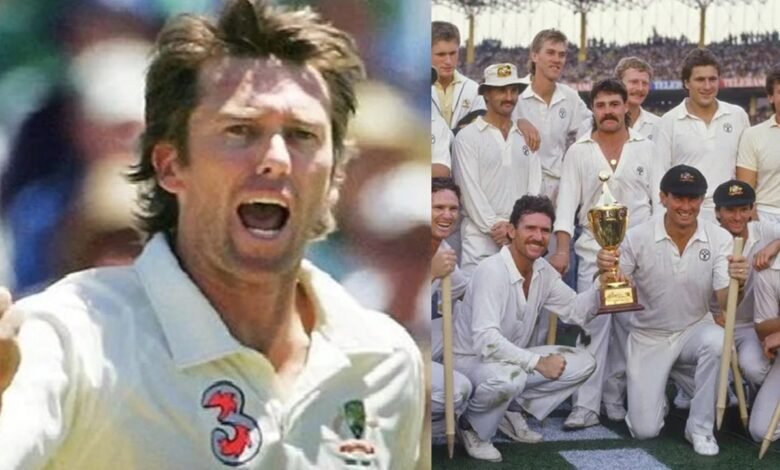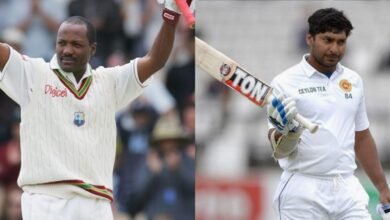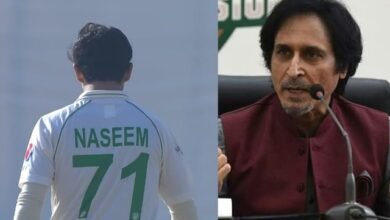Australia’s playing XI when Glenn McGrath made his Test Debut

Until recently, it was Glenn McGrath who topped the list of pacers with the most wickets in Tests. However, the likes of James Anderson and Stuart Broad have overtaken him. Nevertheless, for Australia, Glenn McGrath is the greatest pacer that the nation has seen. He was dominant in both formats in all phases of the game. It was in 1993 at the WACA that McGrath made his debut against New Zealand. The right-arm pacer took three wickets in the game. On that note, here, we take a look at Australia’s playing XI when Glenn McGrath made his Test Debut.
Openers: Mark Taylor and Michael Slater
Mark Taylor and Michael Slater were the openers in Australia’s playing XI when Glenn McGrath made his Test Debut. Back then, Australia had its opening pair sorted. Mark Taylor and Michael Slater opened quite a few games together. Mark Taylor also got a chance to captain the nation.
Middle-Order: David Boon, Allan Border (C) and Ian Healy (WK)
In around 100 games, David Boon scored more than 7000 Test runs for Australia. While he was a terrific cricketer, so was the captain of Australia in this game – Allan Border. Having played more than 150 Tests, he made more than 10000 runs while also contributing a bit with the ball often. Ian Healy was then a constant behind the stumps for Australia. He even scored a century in this encounter.
All-Rounders: Mark Waugh and Steve Waugh
Steve Waugh and Mark Waugh were the all-rounders in Australia’s playing XI when Glenn McGrath made his Test Debut. The Waugh brothers added a lot of balance to Australia’s squad in the 90s. With them in the team, the management never had to go in search of a genuine all-rounder.
Bowlers: Paul Rieffel, Craig McDermott, Shane Warne and Glenn McGrath
While Paul Rieffel played 35 games for Australia, McDermott played more than 70 and picked close to 300 wickets in them. Of course, the contributions of Shane Warne and Glenn McGrath are well-known. Very few predicted the duo to have such an impact on world cricket back then.



